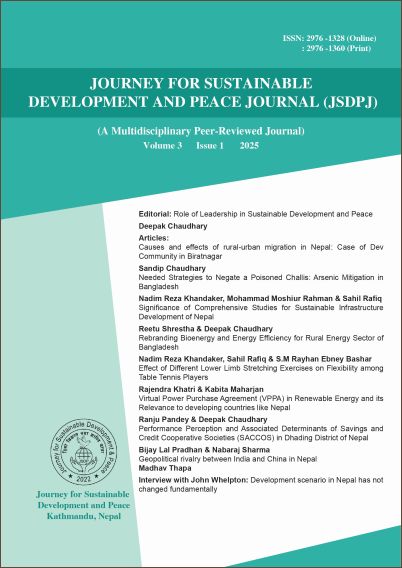Significance of Comprehensive Studies for Sustainable Infrastructure Development of Nepal
DOI:
https://doi.org/10.3126/jsdpj.v3i1.75567Keywords:
Infrastructure development, comprehensive study, planning, sustainabilityAbstract
This paper discusses the importance of comprehensive studies for sustainable infrastructure development through a systematic review and comparison with past development cases in Nepal. Nepal needs an expanded infrastructure network to foster economic growth by addressing its current infrastructure deficits. However, it is also essential to maintain a balance among social, economic, and environmental considerations. Sustainable infrastructure integrates environmental preservation, financial and economic viability, and social equity, which is critical for long-term progress. The absence of comprehensive planning-based studies on infrastructure projects has led to significant failures, delays, and inefficient use of resources. The practices of comprehensive planning involve infrastructure development studies, including feasibility studies, detailed designs, and specialized analyses—such as climate data, topography, geology, and socio-economic impacts, financial and economic analysis, and risk analysis—to ensure sustainability. By examining several Nepalese projects, this paper highlights the consequences of inadequate study and offers insights to address the existing gaps.
Downloads
Downloads
Published
How to Cite
Issue
Section
License

This work is licensed under a Creative Commons Attribution-NonCommercial 4.0 International License.
This license enables reusers to distribute, remix, adapt, and build upon the material in any medium or format for noncommercial purposes only, and only so long as attribution is given to the creator.




